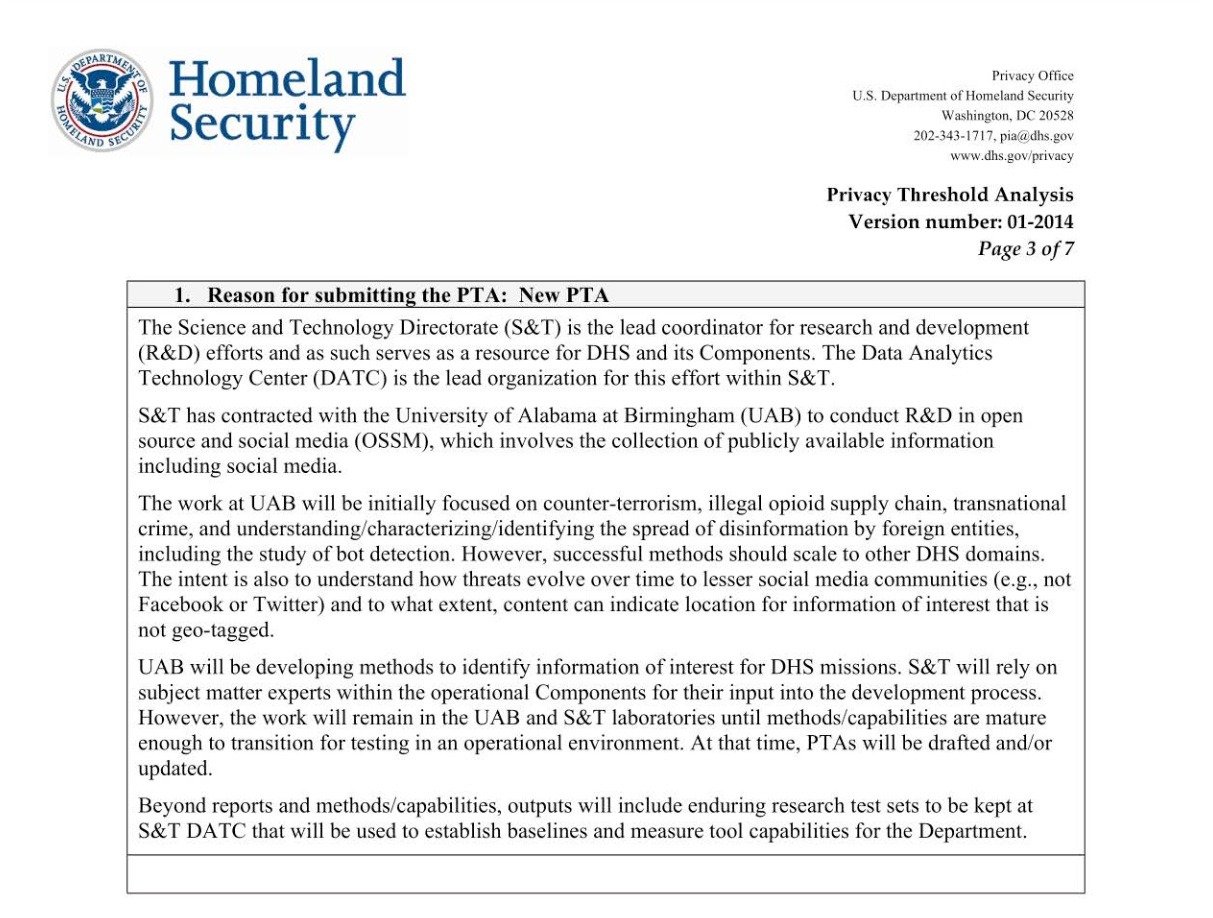by Cindy Harper, Reclaim The Net:
 Newly-obtained documents reveal.
Newly-obtained documents reveal.
In a sharp spotlight on the interplay between national security and individual privacy, newly disclosed documents have unveiled that the Department of Homeland Security (DHS) entered into a contract with the University of Alabama at Birmingham (UAB) in 2018 to develop a project, dubbed “Night Fury,” designed to analyze and assign “risk scores” to social media accounts.
TRUTH LIVES on at https://sgtreport.tv/
The Brennan Center for Justice procured these documents through a public records request, and Motherboard was the first to report on them. Project Night Fury aimed at utilizing automation to detect and evaluate social media accounts for connections to terrorism, illegal opioid distribution, but also disinformation campaigns.
The DHS document stated, “The Contractor shall develop these attributes to create a methodology for developing a ranking, or ‘Risk Score,’ associated with the identified accounts.”

Project Night Fury had also planned on incorporating involvement from Customs and Border Protection (CBP), Immigration and Customs Enforcement (ICE), Transportation Security Administration (TSA), and US Citizenship and Immigration Services (USCIS) to provide “cross-mission operational context,” according to one of the documents.
Experts had warned DHS about the inherent difficulties and biases involved in automated judgment for these matters, citing that characteristics like being “pro-terrorist” have no concrete definition.
Notably, DHS terminated Project Night Fury in 2019. However, it underscores the agency’s continued interest in social media as a resource for analysis. This comes in the wake of earlier reports of CBP utilizing an AI-powered tool, Babel X, for analyzing travelers’ social media at US borders.
While Night Fury’s focus was initially on “counter-terrorism, illegal opioid supply chain, transnational crime, and understanding/characterizing/identifying the spread of disinformation by foreign entities,” the documents indicate that UAB’s work was intended to “scale to other DHS domains” and “build next generation capabilities.”




